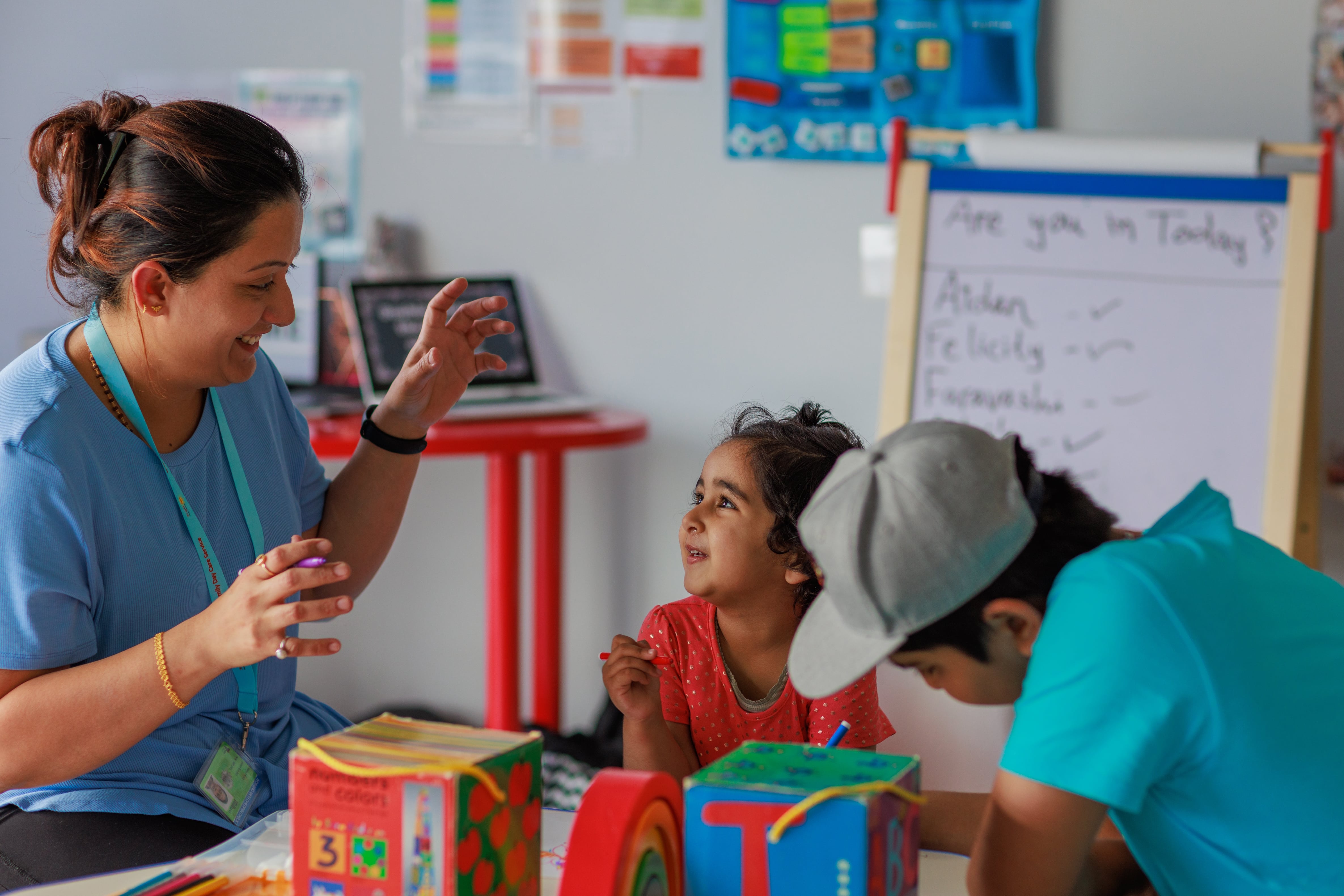On this page
Download this Fact Sheet:
Fact Sheet: The role of early learning services in supporting children after a traumatic event (3.1 MB, PDF)
Most babies and toddlers up to the age of 4 or 5 who are well-supported by caring adults after experiencing a traumatic event in the community will recover from any distress they feel in weeks or months.
This shows the important role early learning services and educators play in supporting the recovery and resilience of very young children after events such as bushfires, floods or the impacts of the pandemic.
The educator's role
The relationships and routines of an early learning service can support young children and their families after a traumatic event in the community.
As an educator, you are well-placed to support children’s recovery by nurturing relationships and routines, creating a safe environment and using play experiences effectively to foster safety and connection.
It’s also important to be aware of your own needs and to look after your wellbeing, too.
Daily approaches
Here are 4 ways early learning services build relationships, and support safety and regulation following a natural disaster or other traumatic event in the community.
Routines
Continuing with familiar routines in an early learning service is particularly important to support children experiencing a traumatic event in the community.
Strategies for daily routines that promote a sense of safety and regulation in babies and young children include these:
- Find a balance between predictable routines and flexibility. Being able to adjust the daily schedule to suit children's needs can be helpful.
- Notice particular activities, songs, or stories that the children respond well to or enjoy and build these into enjoyable routines and rituals.
- Plan for a combination of individual and whole-group activities to help re-engage children.
- Schedule regular breaks throughout the day. A mix of physical and mental breaks is ideal.
- Use your early learning service's daily rest or quiet time routine to practise relaxation techniques. You could encourage younger children to hold and stroke a soft toy while they listen to music. You could also teach breathing techniques for relaxation to children who are receptive.
Relationships
Relationships with educators and other children are vital for providing very young children with the safety and security they need.
Enhance daily interactions with the babies and toddlers in your learning community by:
- greeting them warmly when they arrive
- using daily care rituals, such as handwashing before meals or putting on shoes or hats for outside time, as opportunities to build caring relationships with children
- ensuring their voices are heard by taking the time to listen to any fears and worries that they're able to express
- offering reassurance and encouragement.
Environment
Often, a traumatic event in the community can disrupt a very young child's perception of their safety and security in the world.
Setting up designated quiet spaces in the service with books, soft furnishings or toys provides very young children with a space to retreat to if they're feeling overwhelmed.
Play and storytelling
Play experiences, including painting, drawing, storytelling and engaging in dramatic play, can provide very young children with the opportunity to communicate their experiences.
Over time, play can also help them make sense of a traumatic event.
The Birdie's Tree stories and games developed by the Queensland Centre for Perinatal and Infant Mental Health are designed to help a young child work through their experience, while also giving them a sense of action and control.
Be You resources
For professional development to support young children after a natural disaster or other traumatic event in the community, see the Natural disasters and other community trauma and Therapeutic Storytelling modules of the Be You Professional Learning.
For strategies to look after your own wellbeing, see Wellbeing tools for educators on the Be You website.
-
External links
Birdie’s Tree, Queensland Centre for Perinatal and Infant Mental Health, Children's Health Queensland
How child care professionals can help children aged 0-24 months following a traumatic event, Emerging Minds
Trauma and children – newborns to two years, Better Health Channel
Trauma and children – two to five years, Better Health Channel -
Bibliography
Khalid, H. A. (2019, October). Building resilience in chronic trauma through self-regulation. European Journal of Educational Sciences, Special Edition, 102-115.
